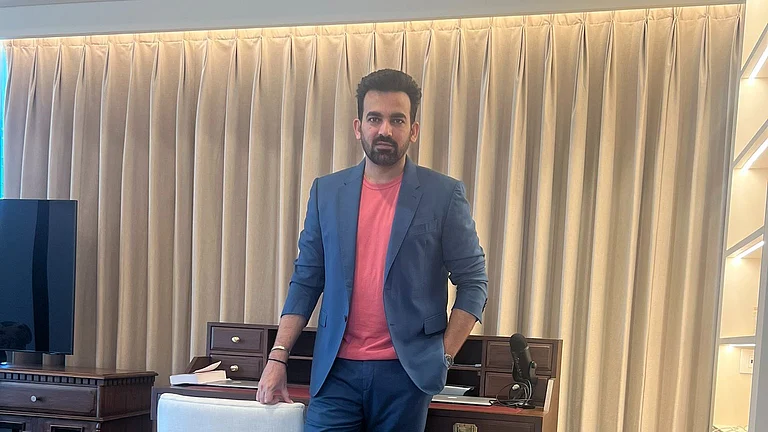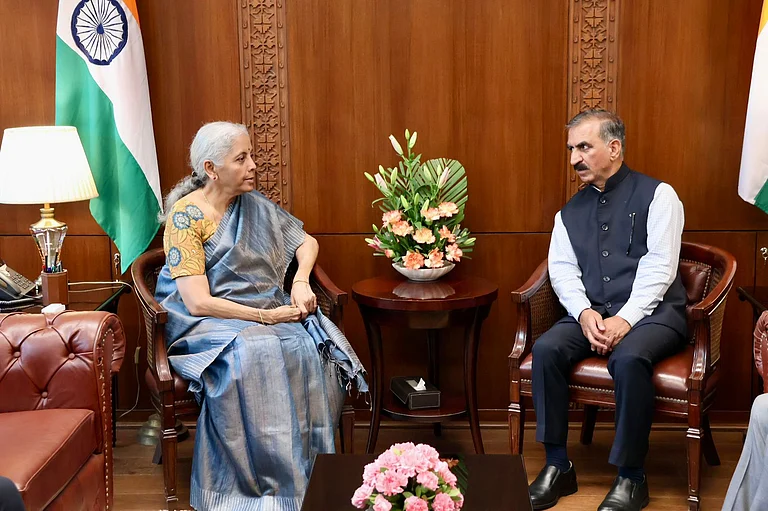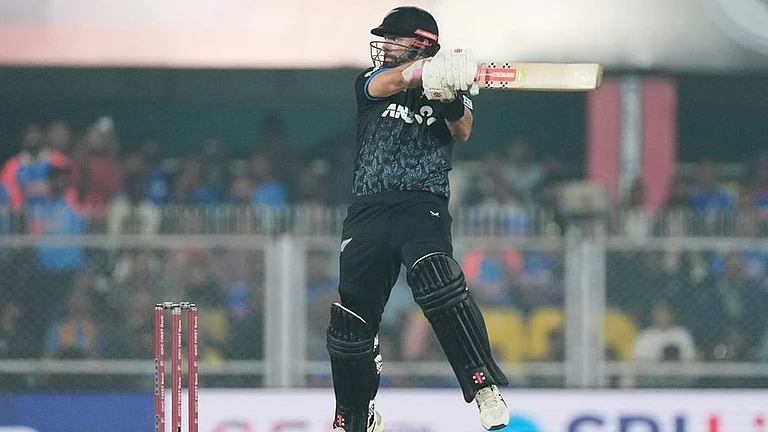In April 2013, Defence Minister AK Antony ordered the dismissal of an Indian Navy officer after he was found guilty of “illicit relations” with his superior’s wife.
Approved by Antony on the basis of the inquiry report submitted by the Naval Headquarters, a Lieutenant Commander (equivalent to a Major in the Army) was discharged from service on account of "stealing the affection of brother officer's wife", a punishable offence in the armed force.
'Stealing the affection of a brother officer's wife' is used as a euphemism for adultery in the armed forces. Considered a serious offence, it can lead to court martial proceedings and derives its power from Section 497 of the Indian Penal Code (IPC).
On September 27, 2018, the Supreme Court in Joseph Shine vs Union of India struck down Section 497 of the Indian Penal Code (IPC), a 158-year-old anti-adultery law as it dented the women’s individuality and treated them as "chattel of husbands".
Conceding that “the adultery law is arbitrary, and it offends the dignity of a woman”, the apex court rendered the law as unconstitutional. The five-judge bench observed that the law permitted the husband a license to "to use the woman as chattel…archaic law…long outlived its purpose and does not square with constitutional morality".
The Union of India, on November 5, 2020 filed a miscellaneous application seeking clarification from the Court about how the judgment would apply to armed forces personnel in reference to Section 69 of the Army Act, 1950 about the violation of good order and discipline, punishing members of the armed forces for committing civil offences. The Union sought to clarify whether this includes adultery practised by armed forces members.
Concerned about the discipline and morale of its personnel, the Indian Army filed a plea seeking clarification of the September 27, 2018 order. On January 13, 2021, the Centre moved the Supreme Court to exempt the armed forces from the purview of its verdict on the Joseph Shine case. Appearing for the Centre, Additional Solicitor General Madhavi Divan, submitted that the Ministry of Defence sought an exemption to armed forces of decriminalization of IPC 487, on grounds that it may hinder action against officers who indulge in such actions and can cause 'instability' within the services.
Enacted in 1860, the archaic 19th-century law perceived the husband as a master and objectified the wife, conferring women a subsidiary status. IPC 497 defined adultery as: "Whoever has sexual intercourse with a person who is and whom he knows or has reason to believe to be the wife of another man, without the consent or connivance of that man, such sexual intercourse not amounting to the offence of rape, is guilty of the offence of adultery and shall be punished with imprisonment of either description for a term which may extend to five years, or with fine, or with both."
The law did not allow a wife to file a criminal case against her husband in an extramarital affair, or the woman he had an affair with. It disallowed any case to be filed against a wife in case of an extramarital affair and rather punished only the man she had a sexual relationship with. However, it was not a crime if a man, with the permission of a husband, had sexual intercourse with his wife. Therefore, contradicts constitutionally guaranteed Fundamental Rights. Such laws trickle down to impose and inflict values and morals from a non-gender neutral and regressed perspective.
'Welcome' ceremony of a woman
Different practices and rituals in the military and armed forces reveal the forces of a rather archaic morality shaping the experiences of military wives. The incorporation of a 'lady' (an officer’s newly married wife) into the army and air force commences with a “Welcome” ceremony where dozens of wives and officers of her husband's squadron prank her for three to four hours.
The idea behind the “prank” is to make the ‘lady’ feel belongingness to the squad. The motive is achieved only when the wife breaks down in tears or mentally. Some pranks, named in a report by Feminism In India are --- An officer’s wife being told that her partner has been having an affair; some being told that their husbands were already married, that they were their respective partners’ second wives, and hence, their marriages were ‘null and void’ (if not a Muslim). All is done in high spirits and discipline of the armed forces, it is said. The practice continues in 2023.
Following the Union's plea, a five-member Supreme Court bench comprising justices Ajay Rastogi, Aniruddha Bose, Hrishikesh Roy, and C T Ravikumar, and headed by Justice K M Joseph on March 31, 2023, ruled that the Armed Forces can stipulate actions against officers indulging in adultery. Saying that military discipline will be affected if there is an army with "completely loose morals", the Constitution bench clarified that decriminalisation of adultery would not stand in the way of initiating disciplinary proceedings for the armed forces.
"This Court was neither called upon nor has pronounced on Sections 45 and 63 of the Army Act and corresponding provisions of the other Acts. We only make this position clear and dispose of the application (filed by the Centre)," the bench said adding that it is not as if "this court approved of adultery".
The 2023 court thus now allows the army to make departmental inquiries, proceedings, and dismissals of officers in cases of adultery. Section 45 of the Army Act 1950 lays down a wide definition of Unbecoming conduct, "Any officer, junior commissioned officer or warrant officer who behaves in a manner unbecoming his position and the character expected of him shall, on conviction by court-martial, if he is an officer, be liable to be cashiered or to suffer such less punishment as is in this Act mentioned; and, if he is a junior commissioned officer or a warrant officer, be liable to be dismissed or to suffer such less punishment as is in this Act mentioned."
SIT probe Sumedha's case
At the time of the 2013 dismissal, the Navy was also faced with the charges of a Lieutenant’s wife in Kochi. Accusing her husband, five of his seniors, and the wife of a senior of sexual harassment, civil services aspirant and IIT Bombay graduate Sumedha (name changed) had also levelled charges of “wife swapping” against them. Flatly denying the allegations of sexual harassment in an FIR filed in Kochi, the Navy sent a report to the defence ministry. Defending its officers, a statement issued by the Navy said, "The wife of the officer has levelled unfair allegations against superior officers in her husband's chain of command, their spouses, and other officers who have interacted with her."
In May 2016, the Supreme Court ordered an SIT probe in Sumedha’s case.
In December 2011, the Indian Navy dismissed a media report alleging incidents of wife swapping among a group of personnel posted in INS Dronacharya, Kochi as 'malicious', 'baseless', and 'factually incorrect'. The news report said that four officers have been shifted for their alleged involvement in wife-swapping.
Speaking with Outlook on the condition of anonymity, officers in the Army and Air Force admitted to ‘adultery’ being rampant and common in the forces. Counselling and transferring are perceived remedial to the instances of adultery in the armed forces. “Being a close-knit organization, what happens in Army stays in Army,” says an official.
Officers also cited instances of differentiated outlooks towards female and male armed officials.
“I am always extra cautious about keeping my doors open whenever someone is in my room, a woman easily gets a bad reputation for something her male counterpart does not,” says a female official.
She also shares that diverse backgrounds and difficult postings often make it challenging for army officials and their families to stay constantly connected. There are multiple arrangements amongst couples to sustain their marital lives. While the working partner of an official either stays away from his/her spouse, or the officer (in very rare cases) gets relocated to their partner.
It was also found during the interaction with Army personnel that while the senior and older officials continue to uphold a patriarchal outlook towards the “Ladies” and wanted women to not live with them, instances of “adultery” are higher among the younger generation, who while they defend and live by their responsibilities and values, also believe that imprisonment and court martial shall not be grounds for the act of “adultery” in Army, that remains a wide concept to interpret.
The special Army laws do not specifically deal with the charge of adultery but rather pertain to the conduct of an officer. Section 63 of the 1950 Army Act lays down the provision for a maximum punishment of seven years referring to “Acts prejudicial to good order and military discipline”


























